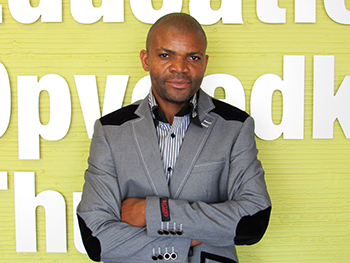Latest News Archive
Please select Category, Year, and then Month to display items
12 October 2020
|
Story Arina Engelbrecht
|
Photo Supplied
 Arina Engelbrecht from Organisational Development and Employee Well-being believes physical activity has a number of benefits for one’s health, including stress relief.
Arina Engelbrecht from Organisational Development and Employee Well-being believes physical activity has a number of benefits for one’s health, including stress relief.
Being physically active plays a big role in preventing the development of mental-health problems and in improving the quality of life of people experiencing mental-health problems.
Treatment for depression
Physical activity can be an alternative treatment for depression. It can be used as a stand-alone treatment or in combination with medication and/or psychological therapy. It promotes all kinds of changes in the brain, including neural growth, reduced inflammation, and new activity patterns are formed that promote feelings of calm and well-being. It releases endorphins – powerful chemicals in the brain that energise your spirit and make you feel good.
Physical activity can be very effective in relieving stress. Research in adults has found that physically active individuals tend to have lower stress levels compared to individuals who are less active. It also leads to improved sleep. When a person sleeps better and feels more rested, overall quality of life improves. They cope better with daily life stressors.
Reduce Alzheimer's risk
Regular physical activity can reduce your risk of developing Alzheimer's disease by up to 50%. It can also slow down further deterioration in those who have already started to develop cognitive problems. It stimulates the brain’s ability to maintain old connections as well as to make new ones.
A study asked people to rate their mood immediately after periods of physical activity (e.g. going for a walk/run, cycling, doing housework) and periods of inactivity (e.g. reading a book or watching television). Researchers found that participants felt more content, more awake, and calmer after being physically active compared to after periods of inactivity.
In conclusion, people who are physically active feel a sense of well-being, feel more energetic throughout the day, sleep better at night, have sharper memories, and feel more relaxed and positive about themselves and their lives.
“Being physically active not only changes your body, it changes your mind,
attitude, and your mood.” – Arina Engelbrecht
UFS PhD scholar honoured by Free State MEC of Education
2016-12-12

Thabo Sithole was awarded a National Teaching Award
for excellence in teaching Physical Sciences.
Photo: Aneka van der Merwe
Thabo Sithole, a PhD student at the University of the Free State’s (UFS) Faculty of Education, was recently awarded a prestigious award during the provincial National Teaching Awards in November at which he was celebrated along with other teachers from the Free State.
Sithole was awarded for excellence in teaching Physical Sciences, using a variety of strategies to appeal to the different abilities of learners.
He holds a BSc Medical Microbiology, BSc Chemistry, BCom Economics, BSc Hons in Chemistry, BCom Hons in Economics and MA in Mathematics. To qualify to become an educator, he completed his Postgraduate Certificate in Education (PGCE) at UFS.
Apart from teaching, Sithole assists youths confronted with substance abuse and was instrumental in getting funding to assist young people in Jacobsdal. The Albertina Sisulu Youth Recreation Centre in the town now receives annual funding from the Free State Department of Social Development.
Through the National Teaching Awards, the Department of Basic Education acknowledges the extraordinary efforts of teachers, often achieved under very difficult conditions and in service to children from underprivileged families and economically depressed communities.
Leadership is a crucial element to all schools functioning at optimum with all teachers, learners and parents moving forward with a common vision for the improvement of the school.
Sithole’s work also focuses on clustering childhood development centres to work together in order to enhance the preparedness of learners entering primary school. The MEC for Education, Mr Tate Makgoe, said the National Teaching Awards recognised and promoted excellence in teaching.
The UFS Faculty of Education congratulated all teachers in South Africa who worked tirelessly to build a better future for all learners.